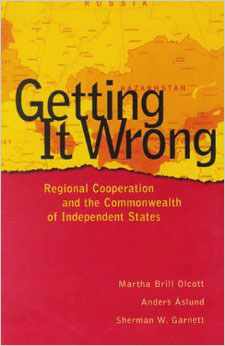Source: Washington
 On December 8, 1991, even before the Soviet Union was officially dissolved, the leaders of Russia, Belarus, and Ukraine met in the Belovezh Forest outside Minsk to lay the groundwork for the post-Soviet era. There they signed what became known as the Belovezh Accords, creating the Commonwealth of Independent States (CIS). Two weeks later, eight other Soviet republics joined the three founding members.
On December 8, 1991, even before the Soviet Union was officially dissolved, the leaders of Russia, Belarus, and Ukraine met in the Belovezh Forest outside Minsk to lay the groundwork for the post-Soviet era. There they signed what became known as the Belovezh Accords, creating the Commonwealth of Independent States (CIS). Two weeks later, eight other Soviet republics joined the three founding members.
In the void left by the collapse of the USSR, the CIS was to become a superstructure that would coordinate the foreign and security policies of the member states, develop a common economic space, and provide for an orderly transition from the Soviet Union to the post-Soviet phase. In reality, the CIS has failed. For Russia, the CIS has not served as a vehicle for exerting control over its neighbors. As an organization, the CIS has not succeeded at reintegrating the post-Soviet states. The desire of the new nations to assert themselves as independent entities has proven more powerful than their urge to replace the Soviet Union with a new system of collective government.
Written by three of the West's leading experts on the former Soviet Union, this book offers a comprehensive assessment of how and why the CIS has failed.
Advance Praise
“The authors of this comprehensive study are all well-respected specialists in the field, and they present a broad-ranging picture of the experiences and problems that have arisen in the former Soviet space.”
—Ronald J. Hill, Department of Political Science, Trinity College, Dublin
“A unique and useful book.”
—Robert Legvold, Foreign Affairs





